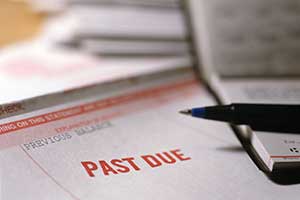
If your debts have become more than you can handle, the good news is that bankruptcy, a legal way to have many debts forgiven, can put you on the road to financial recovery. If you’re a good candidate for bankruptcy, filing can keep creditors from harassing you and seizing your possessions, allow debts to be forgiven, and provide a way for you to keep your assets and begin to rebuild your life.
However, the bankruptcy process is not simple and can be confusing. There are a number of steps you must follow, and there are some debts that bankruptcy cannot completely eliminate.
How do bankruptcies work in Ohio, and how do you know whether bankruptcy is right for you? The skilled and seasoned Ohio bankruptcy attorneys at Fesenmyer Cousino Weinzimmer understand that money problems can happen to even the most hard-working and well-intentioned people. We offer a free consultation to evaluate your financial situation. We can help by looking at your income, your debts and your goals, explaining what you need to know about bankruptcy and coming up with a plan that’s best for you.
How Ohio Bankruptcy Works — Understanding the Different Types
All Ohio bankruptcies are governed by the United States Bankruptcy Code, which provides several ways for individuals to file bankruptcy and outlines how bankruptcies work. The most common types are Chapter 7 and Chapter 13.
1. Chapter 7 Bankruptcy
If your income is too low to pay credit card bills, medical bills, utilities, payday loans or personal loans, if there are no cosigners involved, or if you are facing court action by creditors, Chapter 7 may be your best option.
Chapter 7 bankruptcy, also known as a “liquidation” bankruptcy, is the most common consumer bankruptcy. It allows you to make a fresh start, enables you to discharge (eliminate) most or all consumer and/or business debts, and it is over in a few months, so you can begin rebuilding credit quickly.
If you qualify for Chapter 7, Ohio law provides many exemptions that you can keep, including clothing, cars, equipment used for work, and household furnishings, so you can still meet your basic needs. If you do not have many assets, they may all be exempt. Non-exempt assets will be liquidated by a court-appointed trustee and used to pay off your creditors, and any remaining unsecured debts will be discharged so you no longer have to pay them.
Before qualifying for Chapter 7, you are required to take an approved credit counseling course within the six-month period prior to filing. You must also pass an Ohio “means test” to determine whether your average income for the six months before your bankruptcy filing is below the median for the State of Ohio.
There are some debts that cannot be discharged in Chapter 7, including:
- debts arising from child or spousal support obligations
- fines for breaking the law
- many tax debts
- debts that you neglected to list on your bankruptcy filings
- civil judgments from drunk driving
Federally guaranteed student loans can be discharged only if the bankruptcy court finds they would create a significant “hardship.”
Before your Chapter 7 discharge, you must complete an approved “financial management” program and file a form certifying that you did so. You file this after you file your Chapter 7 petition, but no more than 45 days after the bankruptcy court schedules a required meeting of your creditors.
If you don’t qualify for Chapter 7, you may still qualify for Chapter 13 bankruptcy.
2. Chapter 13 bankruptcy.
Chapter 13 is best for those who don’t qualify for Chapter 7 and who have a steady income, financial problems that are temporary, and a desire to repay some of their debt in order to keep an asset such as a car or a house. With a Chapter 13 bankruptcy, you can consolidate your payments and repay some or all of your debt affordably over a three- to five-year period, while avoiding fees and fines.
Payments to creditors are made through a trustee, and during the repayment period you are protected from actions by creditors, including lawsuits, wage garnishments and harassment. If you successfully complete the court-approved payment plan, the remaining debts covered by the plan are discharged.
Chapter 13 bankruptcy is best if you owe debts that are not dischargeable under Chapter 7, such as taxes and child support, if you have liens that are larger than the value of the assets securing the debt, if you have years of unfiled taxes, if you are behind on car or house payments, or if your assets are worth more than the available exemptions.
Contact us for Help and Guidance on How Bankruptcies Work
The experienced Ohio bankruptcy attorneys at Fesenmyer Cousino Weinzimmer know how frightening and confusing it can be to be faced with the decision of filing for bankruptcy, much less trying to understand how bankruptcies work in Ohio.
We recognize that everyone’s individual situation is different, so we offer a FREE INITIAL CONSULTATION to evaluate your entire financial situation and make sure you are aware of all your options. We will examine your income, your debts and your goals and help you find the best and most affordable path to a brighter financial future.
Delaying can only make your situation worse, so take control of your financial future and learn more about how our firm can be of assistance today. Contact us online or call one of our conveniently located office branches for your free consultation so we can determine what financial solutions will work best for you.


